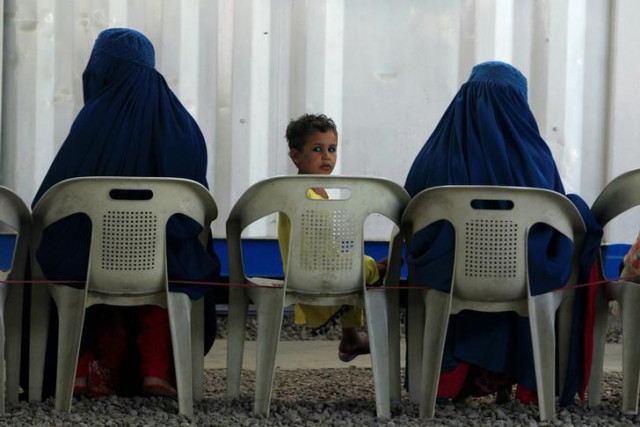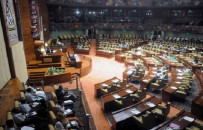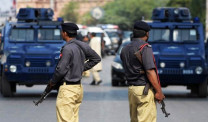Shehryar Afridi steps up efforts to provide rations to Afghan refugees
Shahid Afridi Foundation arranges distribution of food packages at refugee camp in Kohat

Afghan refugees are seen at UNHCR’s Voluntary Repatriation Centre in Peshawar. PHOTO: REUTERS
In this regard, Shehryar Afridi wrote letters to United Nations High Commissioner for Refugees (UNHCR) and urged the world organisation to accelerate relief efforts and provide food ration to the Afghan refugee families trapped in lockdown in across Pakistan, said a press release issued on Saturday.
According to estimates, there are around 3.5 million Afghans living across Pakistan out of which 1.8 million are registered while 0.8 are Proof of Residence (PoR) card holders. Rest are illegal immigrants, called aliens, who are yet to register themselves with authorities concerned.
SAFRON minister along with cricket legend Shahid Afridi on Friday visited Afghan refugee camp in Kohat and oversaw the distribution of food packages to 1,000 families affected by the lockdown. The food supplies were provided by Shahid Afridi Foundation.
On the occasion, Shehryar said that he had launched the food supplies campaign according to vision of Prime Minister Imran Khan and the government would reach the Afghan refugees in every nook and corner of the country with assistance package.
He expressed special gratitude to Shahid Afridi for providing food ration to 1,000 Afghan refugee families. Shehryar Khan Afridi appealed to the people that in these difficult times, every Pakistani has to remember the weak and the poor segments of the society who may not get food due to lockdown situation.
On the occasion, Shahid Afridi said that Afghan refugees are our brothers and Pakistanis stand side by side with Afghan families in these testing times. He said that the Afghan brothers should not be forgotten in these difficult times.
Meanwhile, in line with the request of Shehryar Afridi, the UN Refugee Agency, UNHCR has started dispatching core relief items in support of the government of Pakistan’s response to the Covid-19 pandemic.
The relief items include medical supplies and sanitation products such as sanitary clothes, soap and disinfectants. These packages will be provided to health facilities in support of refugees and host communities in Balochistan, Khyber Pakhtunkhwa and Punjab.
Four trucks carrying some of the many items left from UNHCR’s central warehouse in Nowshera, Khyber Pakhtunkhwa; destined for Balochistan. More items will be delivered next week. “UNHCR is committed to supporting the government’s Covid-19 prevention and response measures,” said the UNHCR Deputy Representative in Pakistan Iain Hall.
He said that the Agency’s priority is to contribute to the overall effort to minimise the spread and impact of the virus. It will provide medical supplies and consumables including personal protective equipment (PPE), which will be delivered to support the people of Pakistan and the Afghan refugees that they have so generously hosted for forty years.
UNHCR is currently focusing interventions in three main areas: prevention and response; water and sanitation; and risk communication. The Commissionerate of Afghan Refugees (Ministry of SAFRON) and UNHCR’s NGO partners are amplifying the Government’s messages and reminders based on WHO guidance on Covid-19 infection prevention and control, including self-hygiene and social distancing.
Meanwhile, the Refugee Rights Network Pakistan (RRN) has highly appreciated the efforts by Minister SAFRON Shehryar Afridi for helping the Afghan refugees in testing times.
Published in The Express Tribune, March 29th, 2020.



















COMMENTS
Comments are moderated and generally will be posted if they are on-topic and not abusive.
For more information, please see our Comments FAQ